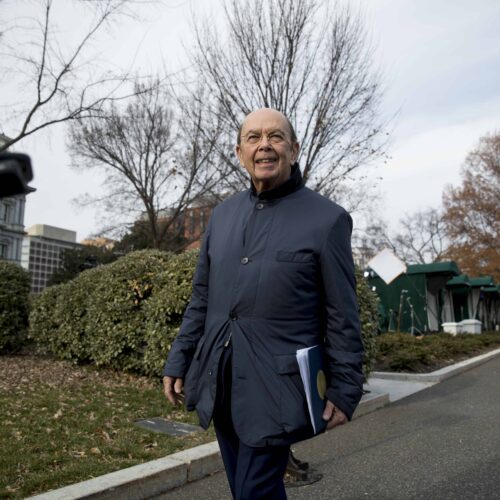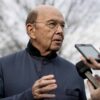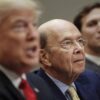Introduction
The Commerce Department’s inspector general should investigate Commerce Secretary Wilbur Ross for “apparent false statements” in connection with his personal financial holdings, a nonpartisan watchdog organization contends in a newly filed complaint.
The complaint from the Campaign Legal Center is rooted in Ross’ acknowledgement, first reported in December by the Center for Public Integrity, that he repeatedly told federal ethics officials he had divested BankUnited stock — even though he had not in fact done so.
Ross said he reported the BankUnited stock sold “based on a mistaken belief that the agent executed my sell order on that date.” The stock was worth $15,000 or less, according to the disclosure.
The disclosure represented the most recent in a series of inaccuracies and omissions in Ross’ financial disclosures, all of which Ross has said were caused by inadvertent errors.
“Maybe one time, two times we believe this is a mistake, but at this point, we need a little more from Secretary Ross than, someone was supposed to sell this stock for me,” Campaign Legal Center ethics counsel Delaney Marsco said. “It’s no longer an acceptable excuse from someone we trust with an insane amount of power and who is supposed to be a very sophisticated investor.”
Ross said in a statement to the Center for Public Integrity that his latest transaction report, showing the sale of the BankUnited stock, corrected the earlier filings.
“As I explained in that report: These shares, issued as directors qualifying shares in 2012 were held in book entry form by Bank United’s stock agent. I previously reported selling the shares on May 31st, 2017 based on a mistaken belief that the agent executed my sell order on that date,” Ross wrote.
Ross said he had owned 100 shares of BankUnited stock.
The new Campaign Legal Center complaint filed today over the BankUnited stock is a supplement to a previous complaint the nonprofit watchdog filed in August.
The August complaint cited reporting by the Center for Public Integrity and others in calling for an extensive investigation into Ross’ handling of his complex financial holdings while in office, including whether he had violated conflict of interest laws. The Commerce Department inspector general has not publicly responded to the previous complaint.
In August, in response to the original complaint, Ross’ lawyer, Theodore Kassinger of the firm O’Melveny & Myers, said Ross “has not violated any conflict of interest law or regulation.”
The new filing additionally asks the Commerce Department inspector general to review whether Ross’ continued ownership of the BankUnited stock past the point when he was supposed to sell it led to any conflict of interest violations.
Ross was supposed to sell the BankUnited stock within 90 days of his confirmation as Commerce Department secretary — by the end of May 2017, according to his ethics agreement.
In May 2017, Ross filed a transaction report saying the BankUnited stock had been sold.
In June 2017, when he certified that he had complied with his ethics agreement, he said there had been an “unanticipated delay” in the sale of some holdings, including the BankUnited stock, but that the divestment had been completed.
Then, in August 2018, Ross filed a new financial disclosure report. It covered his finances through 2017 and again stated he had sold the BankUnited stock in 2017.
In fact, Ross later disclosed, he actually sold the stock in October 2018. The Office of Government Ethics has not yet certified Ross’ August 2018 disclosure report or the transaction report disclosing the sale of the BankUnited stock, but released both in response to records requests from the Center for Public Integrity.
Read more in Money and Democracy
Money and Democracy
What second-quarter fundraising can tell us about 2020
Presidential campaign finance disclosures help gauge candidate viability and voter enthusiasm.
Money and Democracy
Controversial J&J drug pushed by Trump is nixed from VA’s pharmacy list
Experts question Spravato’s safety and effectiveness.





Join the conversation
Show Comments